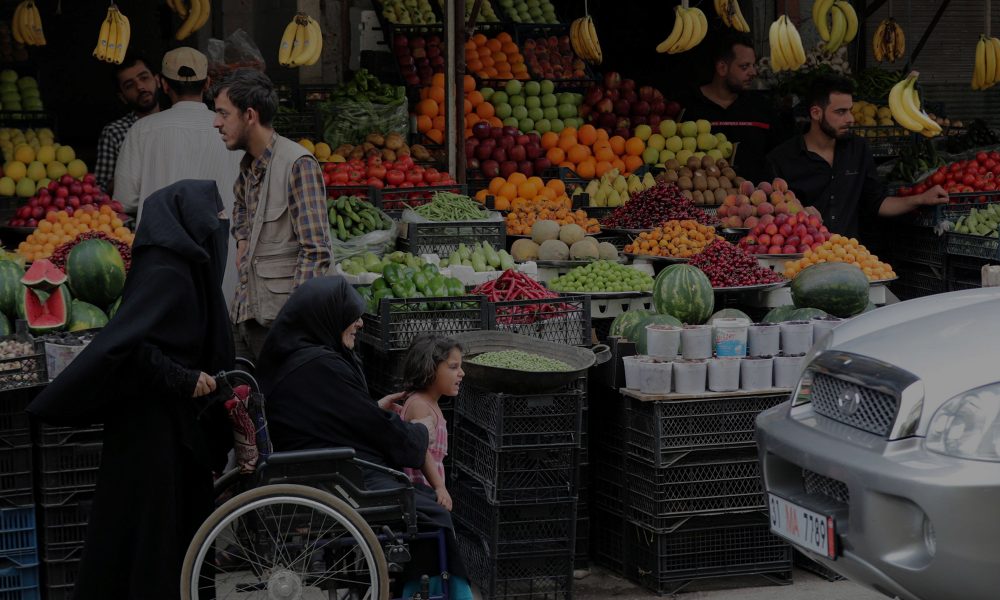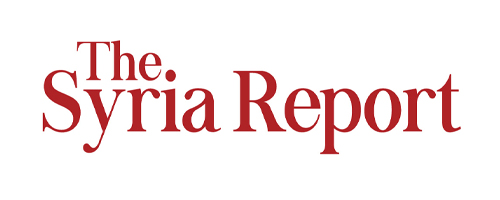
Interview with Gulfsands’ Managing Director John Bell – April 2022
- Home
- /
- Media Hub Posts
- /
- Interview with Gulfsands’ Managing...
The following is an interview conducted by The Syria Report with John Bell, the managing director of Gulfsands Petroleum, a London-based oil and gas company that is the operator and joint-owner of Block 26 in northeast Syria.
Gulfsands has been planning for re-entry in Syria. When do you expect that to happen and what are the logistical preparations?
Gulfsands declared force majeure on Block 26 in 2011. The precise timing of a return remains difficult to predict; however, while our assets remain under force majeure today, we are very much looking forward to resuming production under a lawful, internationallyapproved framework that can help with early recovery efforts for Syria and its people. It is very important to us as a company that we contribute to delivering humanitarian funding to the people of Syria, who are suffering terribly with 90 percent below the poverty line and 60 percent suffering from food insecurity, according to the UN, and who we believe are the rightful owners of Syria’s energy resources. I want to note here that Gulfsands is committed to complying with all applicable sanctions. We also share the values of the relevant Un Security Council resolutions (UNSCR).
Regarding preparations for re-entry, we have prepared a comprehensive Full Field Development Plan and Exploration Programme and are ready to implement this when legal, political and security circumstances allow. These programmes and plans are also in line with our Sustainability Policy, which is guided by the UN Global Compact and UN’s Sustainable Development Goals. Some examples of our previous track record in this regard can be seen on our website including a range of education, healthcare and cultural initiatives.
In regards to sanctions, does Gulfsands’ re-entry depend strictly on UK approvals and waivers or on EU and US waivers as well?
Gulfsands will return to operations in Syria only when it is legal and safe to do so, which would include all applicable sanctions having been lifted or waivers or other equivalent approvals received. We have proactively pursued an open and constructive relationship with the governments and authorities responsible for their implementation.
What actors, besides the General Petroleum Corporation (GPC), are currently operating Block 26? Given that production is ongoing without the participation of Gulfsands, who is receiving the revenues? Is the oil being sold in local or regional markets?
This is a key point – oil from Block 26, a field contracted to us under Syrian and international law, is being produced illegally by other actors. Since early 2017, around 37 million barrels (i.e. at a rate of approximately 20,000 barrels of oil equivalent per day) have been illegally taken from Block 26, with a market value of around USD 2.5 billion. The GPC reports this production as “stolen.”
We understand that the Block 26 assets are managed and controlled by the Syrian Democratic Council/Syrian Democratic Forces and its affiliates, including Al-Jazeera Oil Company, and that the oil is sold through an opaque process. This means that we cannot be sure of the exact destination, or beneficiaries, of the oil sales. But what is clear is that the Syrian population is not benefitting from essential revenues from the country’s natural resources.
It has been widely reported that approximately 70-80,000 bopd is currently being produced in northeast Syria. We further understand that a significant proportion of this oil is transported to the Kurdistan Regional Government and possibly onto international markets via Turkey. This takes place on the black market, away from regulation and oversight, meaning prices are depressed and the potential for corruption is high. It is unclear to us how all of this complies with applicable sanctions, including the Caesar Act. It is difficult to verify the specifics of this trade, but these practices are unsustainable over the long term. Furthermore, the lack of correct international oilfield practices and inadequate maintenance and investment in these oil and gas fields also risk permanently damaging the reservoirs, further diminishing the long-term value of these important resources for the Syrian people.
Who are Gulfsands’ national and international partners in Syria? Do you coordinate with the SDF/the Autonomous Administration of North and East Syria?
As I mentioned earlier, we are committed to complying with all applicable sanctions and adhering to the terms of the relevant UNSCRs. This means that we only engage with partners within the confines of these mandates. To be clear, Gulfsands has not engaged directly or indirectly with the SDF, AANES or any other non-state actors; we support the principles of UNSCR 2254 and the integrity of a united Syria.
When American company Delta Crescent Energy was granted a waiver to extract oil from northeast Syria, was there ever a risk that it would extract oil from Block 26? What was the relationship between Gulfsands and Delta at that time?
At the time that the waiver was granted to DCE, we did express concern about the potential incursion on Gulfsands’ rights. Gulfsands has not, and does not, have a relationship with Delta Crescent Energy and we were disappointed to learn of the OFAC licence granted to them. We remain concerned about illegal production from Block 26 and will continue to assert and defend the Company‘s contractual and other rights under Syrian and international law.
Given that the conflict has cut into the duration of Gulfsands’ legal control of Block 26, what measures is the company taking to ensure that it will be compensated for the years that have passed and the revenues that have been missed following its withdrawal from Syria?
Similar to other independent oil companies (IOCs), Gulfsands believes its Block 26 contract is in a valid force majeure status and so issues related to lost time, revenue, resources, and compensation will be addressed when we are able to return to operations.
The facilities of Block 26 have been largely spared from attacks during the conflict. How is Gulfsands maintaining the security of its facilities, i.e. does it task certain security companies to protect its oil fields and premises?
Gulfsands no longer operates any of its assets in Syria – this includes the provision of security. We do not control or occupy the site.
As I mentioned before, we understand that the Block 26 assets are managed & controlled by the SDC/SDF and its affiliates including Al-Jazeera Oil Company.
What are Gulfsands’ motivations to continue investing in Syria? Have you considered selling your stake and withdrawing?
Gulfsands has been invested in Syria since it first started exploration in 2003 and continues to believe in the country’s potential – in both its people and assets. When conditions allow, we are confident that we can increase production well beyond preconflict levels (which country-wide were around 400,000 boepd). Gulfsands believes potential production from Block 26 could be significantly increased through a combination of development and exploration activities. We estimate that the Syrian oil and gas industry as a whole could produce over 500,000 boepd, generating annual gross revenue of over USD 20 billion at today’s oil prices. Therefore, we believe that the oil and gas industry can play a substantive role in contributing to the early recovery of Syria in accordance with UNSCR 2585, including providing humanitarian relief to its people. Revenues from oil sales – through transparent, regulated and legally compliant processes– can be used to support a humanitarian initiative that honours the rights of Syrians to benefit from their national resources. We would welcome the opportunity to be part of such an initiative.
Finally, as I alluded to earlier, I note that the issues discussed here are not exclusive to Gulfsands. Other IOCs have valid production sharing contracts in Syria, for which they have declared force majeure and which assets, we understand, are similarly being trespassed upon and oil stolen. It is of public record that these include Shell, Total Energy, Sinochem, Sinopec and ONGC who all have interests in Northeast Syria. Gulfsands does not purport to represent any of these other IOCs but understands that they also face many of the issues we have discussed.
Stay Up to Date
Connect with us on LinkedIn and Twitter



